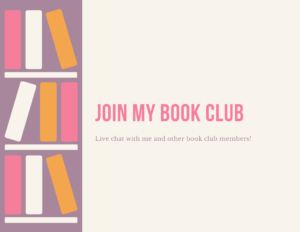Q: Why is writing a passion for you?
It’s one of the few things I can do for 8 hours straight without reaching for M&M’s every 20 minutes.
Q: Where do you find inspiration for your stories and characters?
I read everything from cereal boxes to political editorials, from off-kilter magazines to other people’s personal notes (if I can catch a glimpse). It all gets churned through a warped WHAT IF gear in my head. No different than other people’s minds. It’s just that my wacky conclusions get written down.
Many ideas come to me while exercising. For example, thinking about how I would act as a hostage during a bank robbery led to wondering about who would make an ideal hostage, which led to pondering if a blind person would be a good hostage, which led to musing about a blind hostage who merely pretends to be blind… but who would do that? An actress, of course! And all of that resulted in a screenplay I wrote that’s been very well-received — and is available for any producers out there reading this… wink-wink.
Q: Can you describe your latest novel, Our Eyes Met Over Cantaloupe in twenty words or less?
No way! Wait, do those count? Fourteen left… What happens after someone places a cheesy personal ad… or refuses to?
Q: Besides writing books, you have also written screenplays. How does your writing process differ for these, or how is it the same?
Screenplays and novels both have to be well-constructed stories with heart and plot, but screenplays do it with far fewer words. In a screenplay, each description or set-up is limited to 4 lines or less so each word must be treated like gold.
Novels intimidated me at first because writing descriptive prose is like smashing my head against a cinder block: do it hard enough and long enough, and something worthwhile might fall onto the page – from either my head or the cinder block. You might notice my books are plot-driven with plenty of dialogue and relatively short scenes. That comes from having learned to write efficient, visual screenplays. And even though novels can stretch to 100,000 words or more, I try to value each word.
Q: What are your thoughts on the surge of eBooks? Do you own an eReader?
Ebooks are the iTunes of the publishing industry. They’re shaking it up and they’re here to stay so we might as well embrace them. Besides, what’s not to love? I used to lug around expensive, hard-cover books and now I can carry 50 e-books on my iTouch and even read them in the dark! It’s like the week I spent in the hospital at age five, all x-rays and needles. Guess what I remember about it? The TV remote. At home, we had a 12” black and white television with three channels and a manual dial. The remote control seemed light years ahead. I was living the high life! To me, e-book technology is the great game-changer. It’s that amazing, needle-filled week we all remember so fondly from childhood.
Ebooks also allowed me to find a real, live, reading audience for which I am grateful every minute of every day. My readers are even better than a remote!
Q: Who are a few authors that you would love to work with?
Helen Fielding, Nicholas Hornby, Jennifer Weiner, the late Erma Bombeck. And John Irving – but I wouldn’t speak to him – I’d just gape in awe.
Q: How important do you think social media is for authors?
I’m a bit of a social media Newbie but I think it’s going to play a huge role once everybody cracks the code. John Locke used Twitter and blogs to sell over a million e-books. Others have followed suit. We’re going to see rapid, mind-blowing changes as entire new industries blossom around e-books and social media. I love seeing the entrepreneurial spirit of individuals, i.e., Blog Tour Sites (go ChickLitPlus!), e-book cover design companies, e-book trailer producers, promotional websites, etc.
Q: What are you currently reading?
THE CURIOUS INCIDENT OF THE DOG IN THE NIGHT-TIME by Mark Haddon; THE BOOK THIEF by Markus Zusak; and just finished BEL CANTO by Ann Patchett. All excellent.
Q: Where would be your dream vacation?
Belgium. Belgian chocolate and Belgian beer. ‘Nuff said.
Q: What is your advice to aspiring writers?
Know your story before you begin and write towards its wonderful conclusion. If you change your story midstream (which you probably will), go back and edit, edit, edit. And of course, read Anne McAneny’s books – not for any great writing lessons, but because it will help me get to Belgium. Thanks!
November 1, 2011

